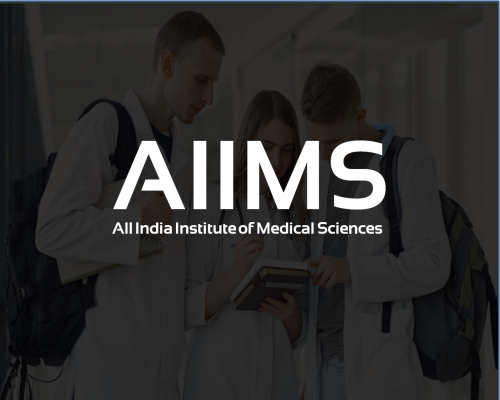Exam Date: August 17, 2025
The All India Institute of Medical Sciences (AIIMS) is a premier medical institution in India, offering undergraduate and postgraduate medical courses. Since 2020, admissions to MBBS programs at AIIMS are conducted through the National Eligibility cum Entrance Test (NEET-UG), as per the National Medical Commission (NMC) Act 2019 .
Eligibility Criteria for AIIMS MBBS (via NEET-UG)
Nationality: Indian Nationals, Non-Resident Indians (NRIs), and Overseas Citizens of India (OCIs) are eligible.
Age Limit: Candidates must have completed 17 years of age at the time of admission or will complete the age on or before 31st December of the year of admission.
Academic Qualifications:
Passed the 12th standard or equivalent examination with Physics, Chemistry, Biology/Biotechnology, and English as subjects.
Minimum aggregate of 60% for General/OBC candidates and 50% for SC/ST candidates in the qualifying examination.
NEET-UG 2025 Registration Process
Visit the Official Website: Go to https://neet.nta.nic.in.
Register Online: Create a new account by providing necessary personal details.
Fill Application Form: Enter academic and contact information accurately.
Upload Documents: Upload scanned copies of passport-sized photograph, signature, and other required documents.
Pay Application Fee: The fee varies based on category and number of papers selected.
Submit Application: Review all details and submit the application form.
Download Confirmation Page: After submission, download and print the confirmation page for future reference.
NEET-UG 2025 Exam Pattern
Mode of Examination: Pen and Paper-based Test (PBT).
Duration: 3 hours (180 minutes).future-mbbs.com
Total Questions: 180 multiple-choice questions (MCQs).
Subjects:
• Physics: 50 questions
• Chemistry: 50 questions
• Biology (Botany & Zoology): 50 questions
• General Knowledge: 20 questions
Marking Scheme:
• +4 marks for each correct answer.
• -1 mark for each incorrect answer.
• 0 marks for unattempted questions.
NEET-UG 2025 Syllabus
The syllabus for NEET-UG is based on the NCERT curriculum for classes 11 and 12 and covers the following subjects:
Physics:
Physical world and measurement
Kinematics
Laws of Motion
Work, Energy, and Power
Motion of System of Particles and Rigid Body
Gravitation
Properties of Bulk Matter
Thermodynamics
Behavior of Perfect Gas and Kinetic Theory
Oscillations and Waves
Chemistry:
Some Basic Concepts of Chemistry
Structure of Atom
Classification of Elements and Periodicity in Properties
Chemical Bonding and Molecular Structure
States of Matter: Gases and Liquids
Thermodynamics
Equilibrium
Redox Reactions
Hydrogen
s-Block Elements (Alkali and Alkaline earth metals)
Some p-Block Elements
Organic Chemistry – Some Basic Principles and Techniques
Hydrocarbons
Environmental Chemistry
Biology:
Diversity in Living World
Structural Organisation in Animals and Plants
Cell Structure and Function
Plant Physiology
Human Physiology
General Knowledge:
Current Affairs
General Science
Culture and Traditions
Geography
History
Economics
1. Know the Syllabus Thoroughly
Focus on NCERT Class 11 & 12 for Physics, Chemistry, and Biology.
AIIMS/NEET questions are concept-based and often directly from NCERT.
Key topics: Genetics, Human Physiology, Organic Chemistry, Thermodynamics, Mechanics, etc.
2. Make a Realistic Study Plan
Create a daily timetable with time slots for each subject.
Include short breaks and weekly revision time.
Prioritize weaker topics and keep adjusting your plan based on progress.
3. Practice MCQs Daily
Start solving objective questions right after studying a topic.
Focus on speed + accuracy.
Use NEET/AIIMS prep books like:
MTG NCERT Fingertips
Dinesh for Physics/Chemistry
Trueman's Biology
4. Master Time Management
Use a timer while solving mock tests or practice papers.
Simulate real exam conditions.
Learn to skip tough questions and return later—don’t get stuck.
5. Revise Regularly
Make short notes, flashcards, or mind maps for quick review.
Weekly revisions lock concepts in long-term memory.
Revise formulas, diagrams, and tricky concepts often.
6. Give Mock Tests & Analyze Performance
Take full-length mock tests regularly (at least 1/week).
Analyze mistakes and weak areas—don't just move on.
Learn to manage stress, fatigue, and pacing during long tests.
7. Focus on Biology – The Scoring Subject
It has the highest weightage and is easiest to score.
Learn from NCERT line by line—most Bio questions come directly from it.
Practice diagram-based questions.
8. Don't Ignore Physics & Chemistry
Build strong basics in Physics concepts and formula applications.
For Chemistry, break it into Physical, Organic, and Inorganic—treat them differently.
Use concept maps and reaction flowcharts.
9. Take Care of Yourself
Sleep 6–8 hours daily to retain what you learn.
Eat healthy and avoid burnout.
Include short exercise or meditation sessions.
10. Stay Positive & Consistent
Keep a growth mindset—improvement matters more than perfection.
Avoid distractions (social media, phone) during study time.
Believe in your preparation and stay disciplined.
May 4, 2025
